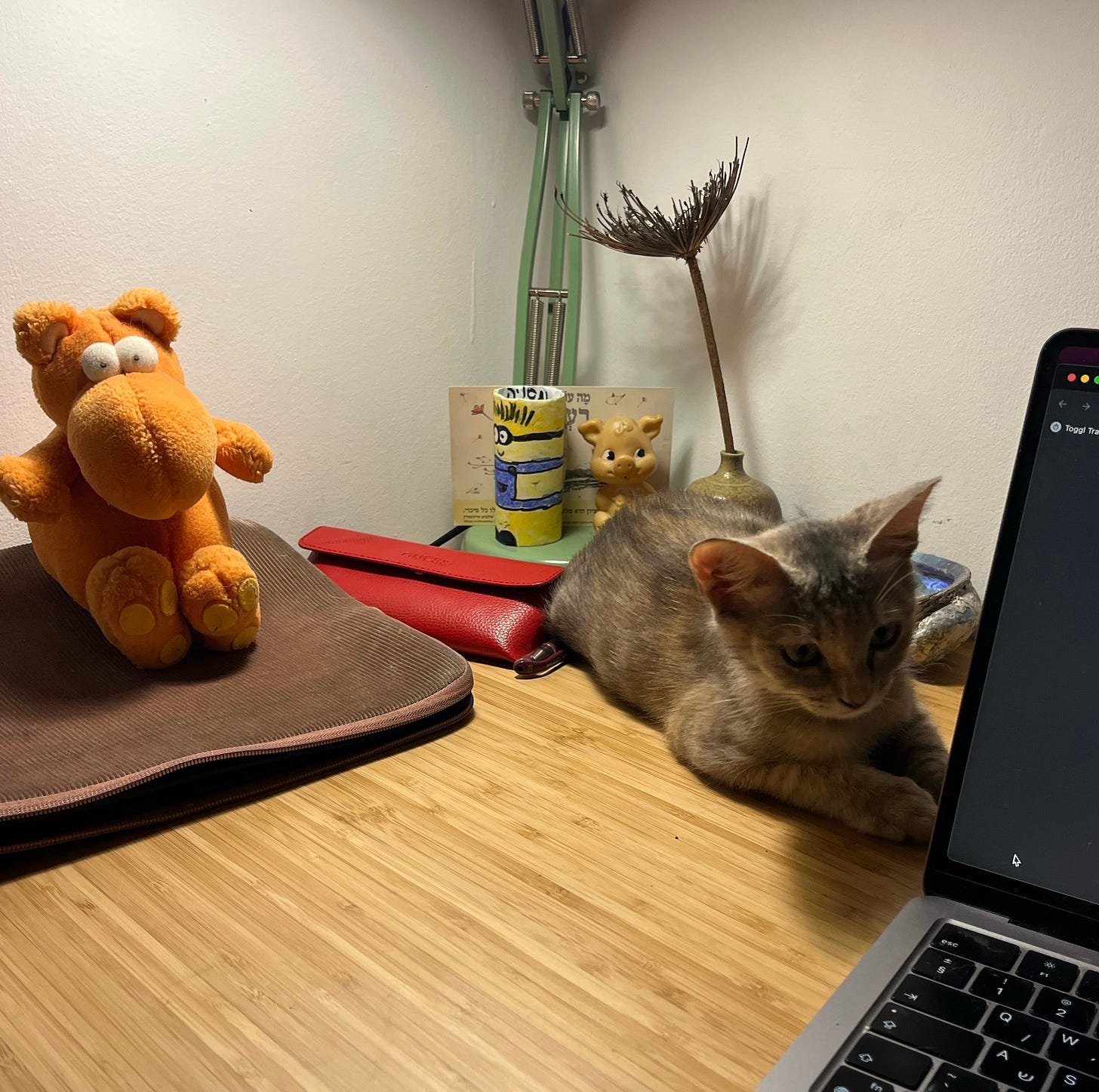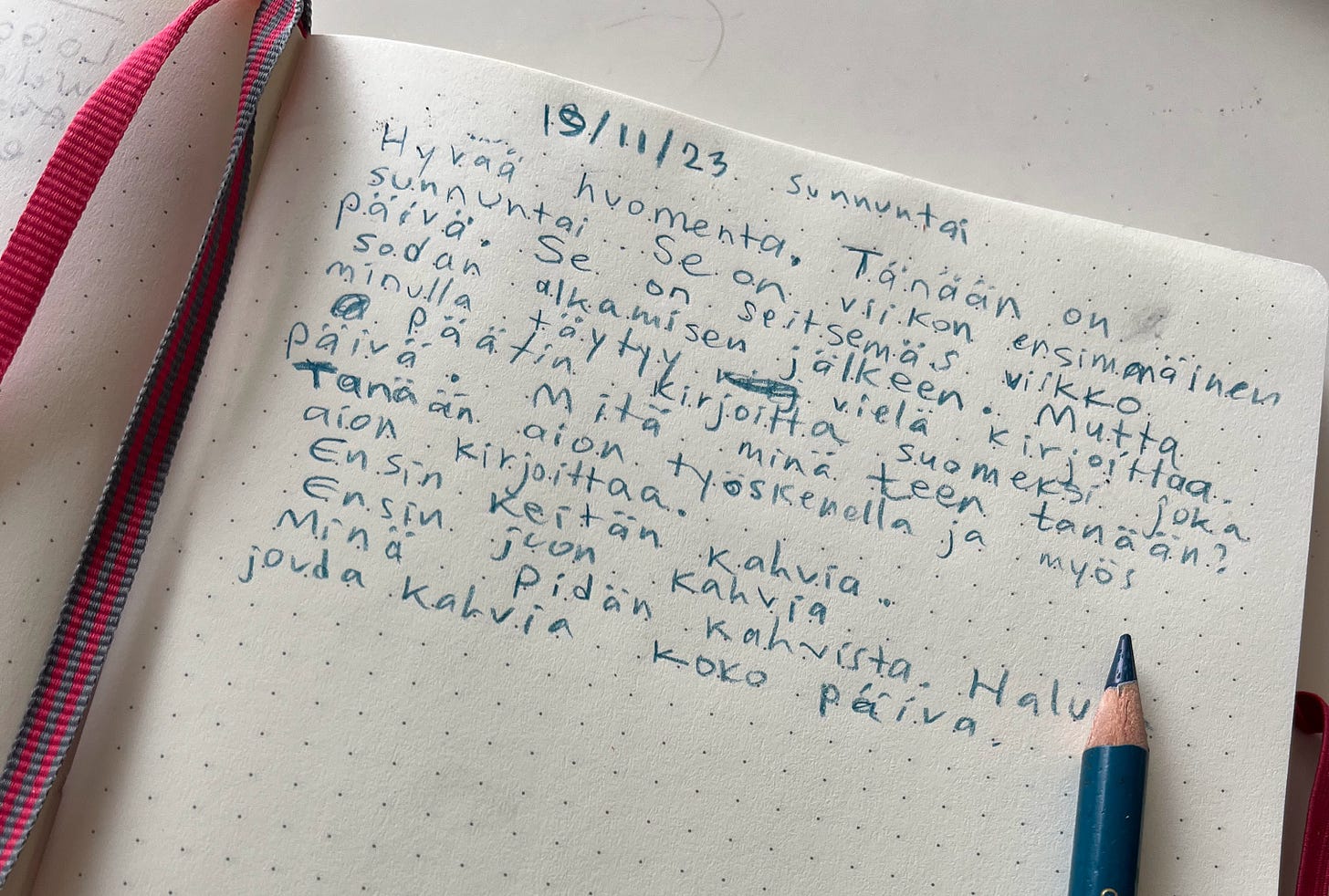Why learn a new language when you know you’re not going to use it?
I know that I’m not going to use Kurmanji in my daily life. Or Manx or Maori or Rusyn or even Finnish.
Maybe I’ll forget everything I’ve learned. Because I simply don’t have time in my day to maintain the knowledge of 12 new languages. Or even 8 new languages.
Right now this is brain candy (the healthy kind), too addictive to give up, but is it worth it in the long term? With our limited time on Earth, why would you spend hours learning a language you won’t use?
I can come up with a few good reasons.
We don’t know what shapes us
I don't remember the plot of every book I've ever read (in fact I don't remember most) but I’m pretty sure that every one of them has changed me a little bit.
I think it’s the same with languages, even if the ones we learn and then don’t use. They change us a little bit even if we’re not aware of it.
This is an unsatisfactory answer in a world of growth and productivity hacks that promise quantifiable results. We’re supposed to be able to calculate the ROI of every step we take.
But I don’t think that’s how growth works in reality.
Most experiences, people, and events that change us do so somewhere below our awareness. It’s rarely possible to pinpoint exactly the things that made you you.
Maybe that means we should just allow ourselves to do what feels right, for whatever reason, at any given moment.
You get better at learning
It takes me less than an hour now to read and understand the transcript of one of Gulê’s podcast episodes in Kurmanji, and even though my vocabulary is meager I barely look up any words. It’s hard to explain how it works but it works.
Your mind just gets accustomed to this dance of figuring things out. It’s a very cool feeling. And I don’t think it would have been possible when I just started.
It also makes me think that we got language learning all wrong. Maybe we shouldn’t be teaching kids how to read and speak a particular language (most schools suck at that anyway, nor do we know what language they’ll need in life.) Perhaps the goal should be to teach them how to learn languages.
You get to take in the view
What’s the point of climbing Mount Everest if you eventually have to climb back down leaving that gorgeous view behind?
(Or if your phone has run out of battery and you can’t take a picture to share with your 5K Facebook friends? Hopefully, that’s not why people climb Mount Everest.)
You can view language learning like that too. Maybe you can’t take with you everything you’ve learned, but you can enjoy the view while you’re there. It’s always worth it, especially if it’s something you haven’t seen before.
The view from the top of Mount Kurmanji
In Kurmanji, you use the phrase kezeba min which means ‘my liver’ as a term of endearment when addressing friends and loved ones.
You might think it’s weird, but then maybe using the phrase “my heart” as many languages do is no less weird because the heart also happens to be an organ.
Plural and singular nouns in this language look the same. Pisîk can mean ‘cat’ or ‘cats’ and you only know which one it is because the word ne in the first sentence means ‘are’, and the word ye in the second sentence means ‘is.’
Pisîk li ser maseyê ye — “The cat is on the table”
Pisîk li ser maseyê ne — “The cats are on the table.”
But plural and singular do look different when the nouns are indefinite (e.g. when we’re talking about ‘a cat’ or ‘some cats’ as opposed to ‘the cat’ / ‘cats’.)
Pisîkek is singular (‘a cat’) and pisîkin is plural (‘some cats’):
Li ser maseyê pisîkek heye — ‘There is a cat on the table”
Li ser maseyê pisîkin hene — “There are some cats on the table."
You can write secret notes to your future self
…that your future self might or might not understand.
I just found this secret note I wrote to my future self in Finnish almost a year ago and was pleased to discover that I still understand most of it (it’s something about how I like coffee or some important information like that), although I wouldn’t be able to write anything back to my past self without a couple of hours of intensive Finnish refresher.
Because it’s fun
I could have added something about how learning languages helps you stave off cognitive decline but honestly, I think that would be a depressing reason to learn languages. It would be like trying to encourage me to do crossword puzzles, or — shudder — jigsaw puzzles because it’s good for my brain or whatever.
I don’t think we should engage in activities that help us preserve our brains but require us to sacrifice our souls to the gods of MedicalNewsToday.
But if it’s something you truly enjoy then that alone I think is a good enough reason to start learning Chukchi, even if you won’t remember a word of it by the time you’re 93.
If you’re a writer on Substack, consider recommending Friends with Words to your readers (go to Dashboard>Settings>Publication details>Recommend other publications on Substack). I’ve set out to learn 12 languages in 12 months while sharing insights about language learning and mountain climbing life.




The algorithm just shared this post with me and I loved it -- especially writing notes to your future self in that language! I will be doing that from now on!
I also appreciated the point that you don't know what shapes you. It's true -- you can't quantify or sometimes even qualitatively describe the impact something has and inevitably leaves on you, but it's consequential nevertheless!
Thank you for sharing such wonderful perspectives! ❤️
We are not machines and therefore we need not what we need in a pragmatic sense, but what can shape a character, a personality. Some years ago I had the same idea as a lead motive for social gatherings, that of approaching a totally new language, well aware that learning is nourishment and not possession. Furthermore, a language is not a tool but involves you into an experience, forcing you to overcome your shyness 😍